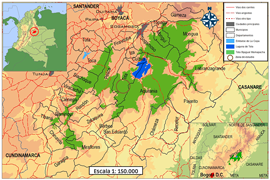Analysis of the effects of environmental conservation and oil exploitation on peasant life in the Páramo de Tota
DOI:
https://doi.org/10.15381/espiral.v6i12.29395Keywords:
Eurocentrism, liberalism, enframing, extractivism, conservationAbstract
The aim of this article is to show how the intrinsic relationship between the peasants of Tota (Boyacá, Colombia) and the paramo ecosystem they inhabit is being negatively affected by policies of both oil extraction and environmental protection. The qualitative research employed includes interviews with local peasants, review of public policies, historical analysis of colonial influence on the perception and treatment of land, and case studies to illustrate peasants' experiences with extractivist and environmental policies. The results show that the peasants of Tota, heirs to the ancestral knowledge of the Muisca, are stigmatized and marginalized by technocrats influenced by Eurocentric ideologies, who see peasants as obstacles to progress, like the stigmatization suffered by their indigenous ancestors during the conquest. Public policies favor oil companies and state institutions that protect water, not for the benefit of peasants, but to guarantee the future of these industries. The discussion highlights how Eurocentric policies continue to perpetuate the exploitation and marginalization of peasants, ignoring the intrinsic value of the paramo and its importance for peasant life. Thus, public policies must be reformulated to integrate the perspectives and needs of peasants, promoting a more holistic and integrated approach.

Downloads
Published
Issue
Section
License
Copyright (c) 2024 Andrés Felipe Rojas Arias, Manuel Leonardo Prada Rodríguez

This work is licensed under a Creative Commons Attribution 4.0 International License.
LOS AUTORES RETIENEN SUS DERECHOS:
a. Los autores retienen sus derechos de marca y patente, y también sobre cualquier proceso o procedimiento descrito en el artículo.
b. Los autores retienen el derecho de compartir, copiar, distribuir, ejecutar y comunicar públicamente el artículo publicado en la revista Espiral (por ejemplo, colocarlo en un repositorio institucional o publicarlo en un libro), con un reconocimiento de su publicación inicial en la revista Espiral.
c. Los autores retienen el derecho a hacer una posterior publicación de su trabajo, de utilizar el artículo o cualquier parte de aquel (por ejemplo: una compilación de sus trabajos, notas para conferencias, tesis, o para un libro), siempre que indiquen la fuente de publicación (autores del trabajo, revista, volumen, número y fecha).





